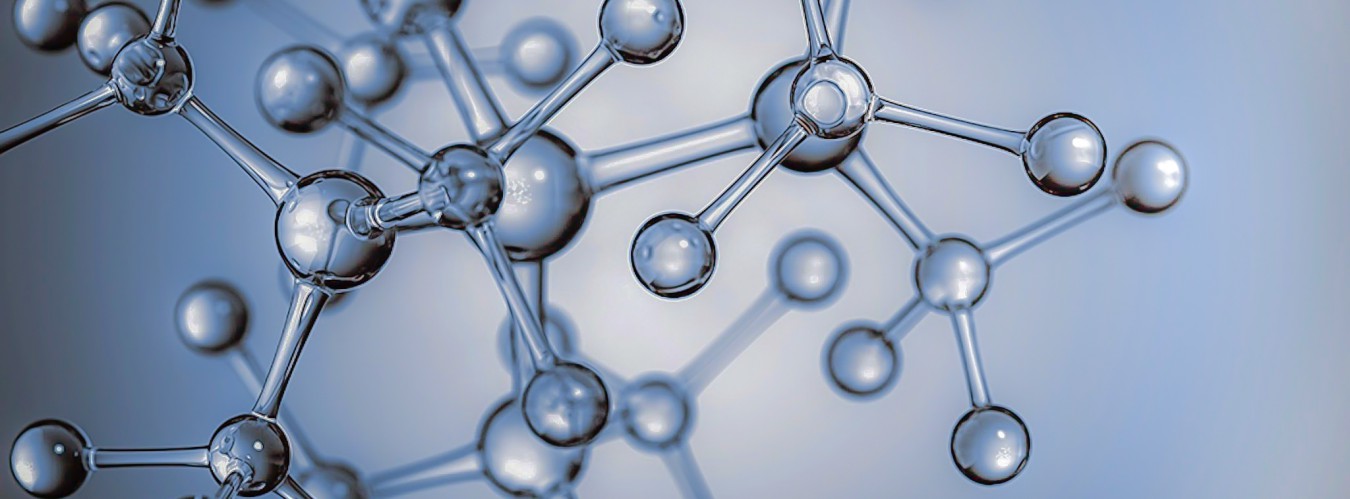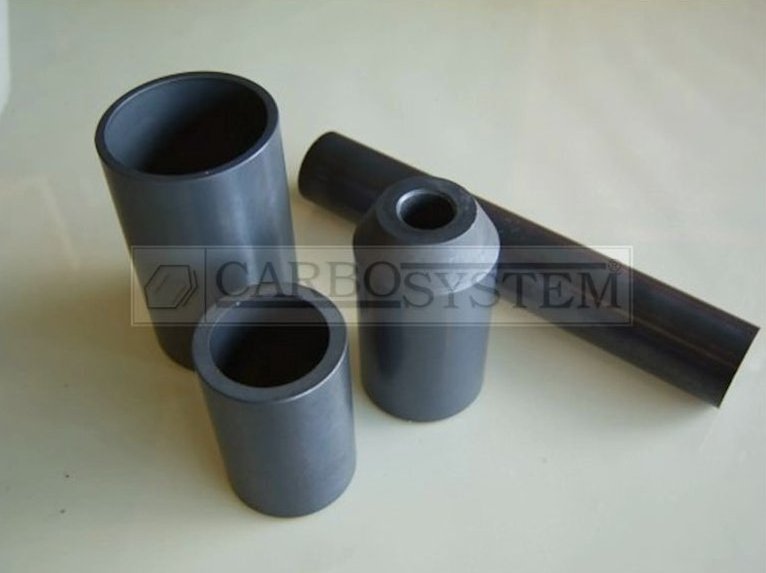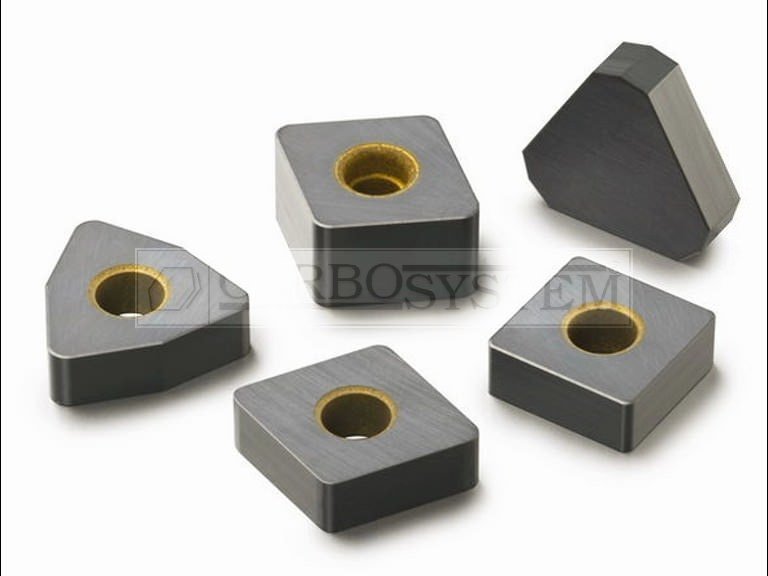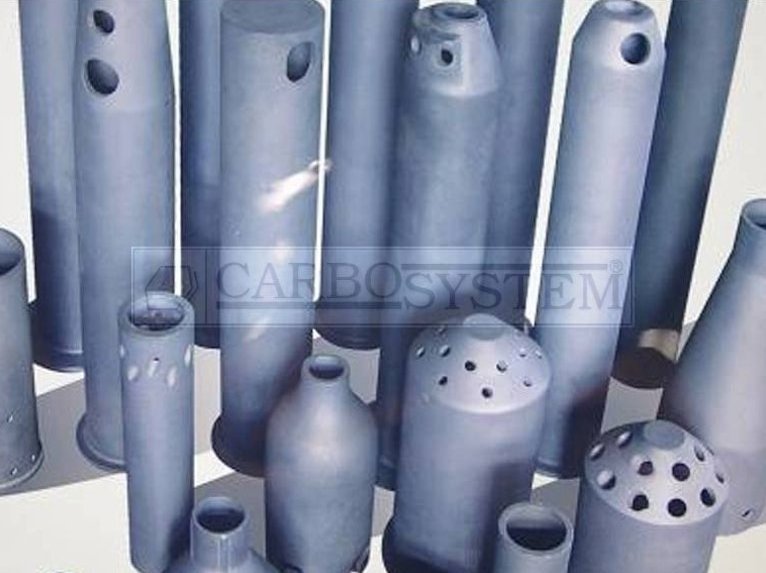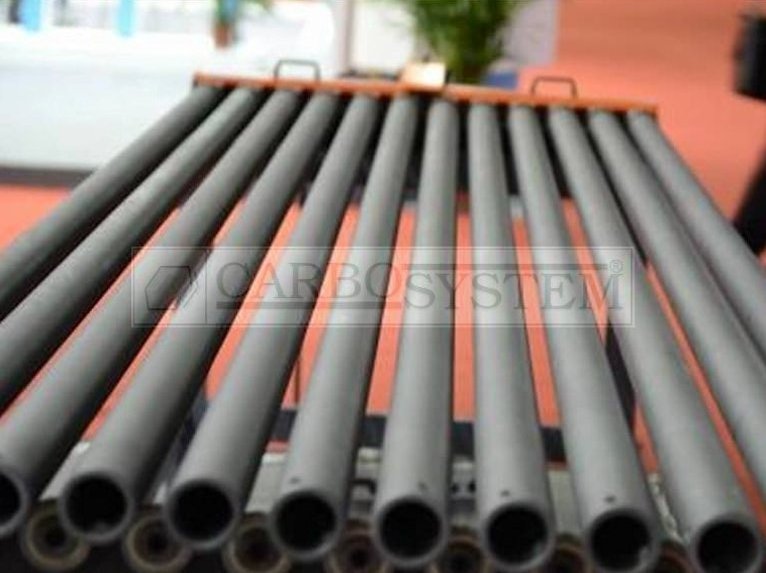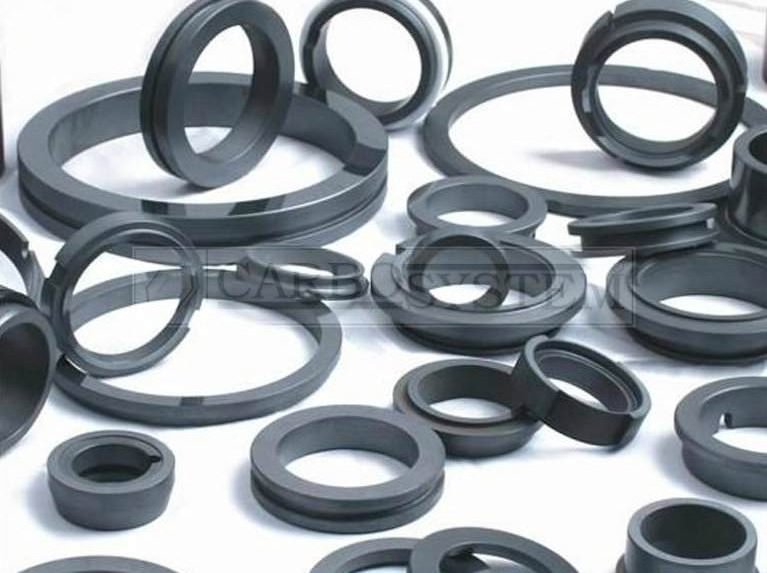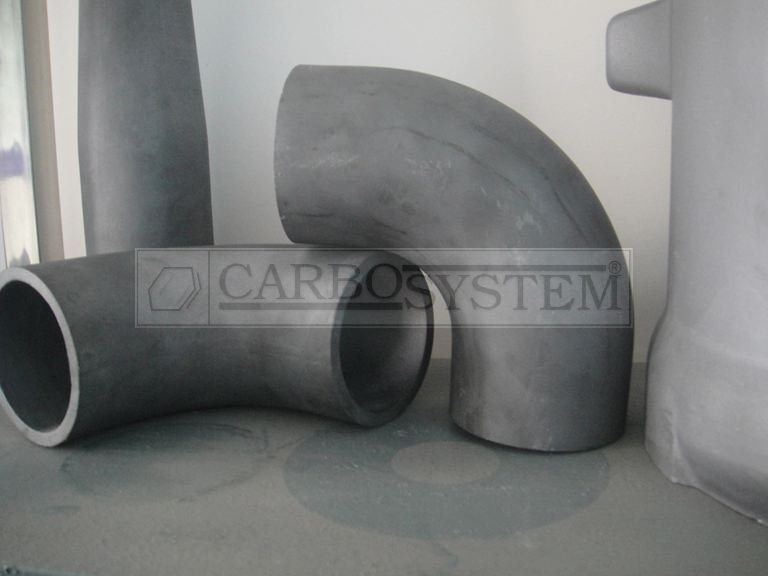Silicon Carbide
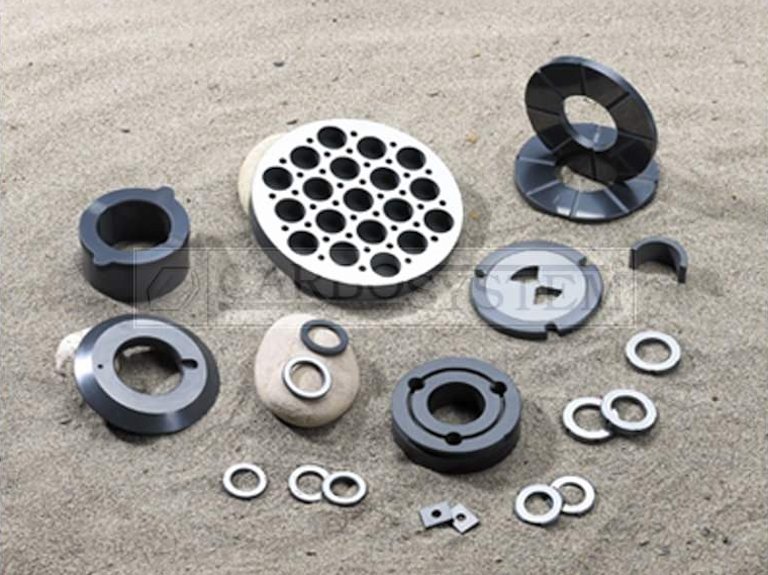
Silicon carbide is a very hard compound, similar to that of diamond, with conductive and refractory properties that make it ideal for use in industrial processes and the manufacture of components and products subjected to extreme conditions of temperature, voltage and frequency.
This semiconductor and refractory material has a hardness of around 9 on the Mohs scale, which is a great advantage over other semiconductor materials with lower mechanical resistance.
Silicon Carbide Properties
– High thermal conductivity
– Low coefficient of expansion
– Corrosion Resistance
– Low coefficient of friction
– High working temperature
– High mechanical strength
Properties | SiC Pure | For Reaction | Sintered | |
|---|---|---|---|---|
| Quality | SiC | SiSiC | SSiC | |
| SiC content | % | 90 | 90 | 98 |
| Density | g/cm3 | 2,7 | 3,0 | 3,1 |
| Elastic Modulus | GPa | 500 | 350 | 400 |
| Compressive Strength | MPa | 1500 | 3000 | 3000 |
| Thermal Expansion Coeff. | 10-6/ºC | 3,9 | 4,3 | 4,0 |
| Working Temperature | ºC | 1500 | 1300 | 1650 |
| These properties are typical average value | ||||
Products and Applications
– Pieces, Plates, Tubes, etc. in Silicon Carbide / Silicon Nitride
– Supports, Rollers, Rods, etc. in Silicon Carbide / Silicon Nitride
– Burners, Nozzles, etc. in Silicon Carbide / Silicon Nitride
Frequently asked questions about Silicon Carbide
What is silicon carbide?
Silicon carbide, also called carborundum or carborundium, is a synthetic material of exceptional hardness, highly resistant to wear and tear and chemically inert to acids and bases. Its formulation is SiC, but it can also be found commercially as SiSi, S-SiC or even in combination with different elements.
What kind of material is silicon carbide?
Silicon carbide is a ceramic that is not found randomly in nature, so its only form of synthetic production comes from the smelting of quartz-rich sands with petroleum coke.
What are its main properties?
Apart from being chemically not very reactive, which makes it an ideal material for situations in which it has to contain acids, bases or simply do not want to contaminate a sample, silicon carbide also has a working temperature of close to 1000º C, while its decomposition temperature is close to 2000º C, which makes it an ideal candidate for applications in furnaces and high temperature processes.
What are the applications of silicon carbide?
From molds for furnaces to bearings for mills, silicon carbide has thousands of specific applications, thanks to its hardness, which gives it extra durability in all situations of sliding and wear. It also has excellent mechanical properties that are not degraded with temperature as much as other alternatives, which makes it suitable for use in oven supports and even thermal insulation panels.
If you want to learn more about silicon carbide, check out our blog
